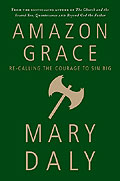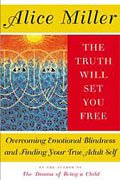 I haven't gotten to posting a list of must-read books but I just finished, Jennifer Nix's article, How to Create a Liberal Bestseller, at The Nation (web only) and thought I'd pass along some excerpts. Jennifer, the publisher for constitutional law attorney turned blogger, Glenn Greenwald, had the treat of telling him, "...your book just hit the New York Times bestseller list!" The feat--from development to distribution--was accomplished in three months, March 1 to June 1. Phenomenal!
I haven't gotten to posting a list of must-read books but I just finished, Jennifer Nix's article, How to Create a Liberal Bestseller, at The Nation (web only) and thought I'd pass along some excerpts. Jennifer, the publisher for constitutional law attorney turned blogger, Glenn Greenwald, had the treat of telling him, "...your book just hit the New York Times bestseller list!" The feat--from development to distribution--was accomplished in three months, March 1 to June 1. Phenomenal!
Ms. Nix possesses a bloodhound's nose for talent:
I'd known a little about blogs after seeing DailyKos take George Lakoff's Don't Think of an Elephant to the bestseller list in November 2004. I later helped to acquire Jerome Armstrong's and Markos Moulitsas Zunigas' Crashing the Gate. But with the total number of blogs doubling every six months, according to a New Politics Institute report, and with Technorati.com now tracking 43 million blogs, it's safe to say there was a whole lot more to learn. I had some catching up to do, but was immediately swept away by the talent, knowledge, patriotism, passion, anger and humor I came upon. As a sometimes journalist, I admired, too, the freedom from editorial constraints in the disparate writing styles, the immediacy, the urgency. I coveted the subjectivity. I fell in love with the conversation.
Greenwald's blog, Unclaimed Territory, piqued my editorial interest because he seemed to have found the elusive formula for attracting both liberals and conservatives and in the commentns [sic] section, these folks were--gasp!--talking to each other in civil fashion.Glenn's meteoric rise to bestselling author began on February 15 when Jennifer approached him with an invitation to write a book.
Working Assets stepped up to fund the project and launch Working Assets Publishing. By March 1, we had a contract and Greenwald sat down to write. There was a printer to find, a distributor to lure, an editorial team to assemble, and all of it managed by a quickly-formed publishing division at the San Francisco headquarters of Working Assets. After some very long days, we delivered the book to the printer on April 24. The day before, I sent digital manuscripts to seven bloggers I'd been working with and asked them to post about the book, if they found it worthy. Within days How Would a Patriot Act? rose from obscurity to number one on Amazon largely because those initial blogs ignited a wildfire of mentions and purchase links throughout the blogosphere. The book stayed there for nearly four days. This sent a shock wave through progressive publishing circles and got stores around the country interested in making Patriot buys. The book's publication date was May 15 and since then has hit the Washington Post and New York Times bestseller list.
This book rose to best-sellerdom primarily because of the pre-launch push from progressive blogs. Later came a front-page San Francisco Chronicle piece, some trade coverage and small mentions in New York Times and New York Observer, but this book has received very little mainstream coverage. No TV, a little radio--mostly Air America. Working Assets did send an e-mail blast about the book, and we got some help from a few organizations, like Drinking Liberally, American Constitution Society, Independent Press Association, and NDN/ New Politics Institute. But the book has not received help from the big membership groups.
This is a success story and a tipping point for the blogosphere. Greenwald went from first-time blogger to best-selling author in a little over six months on the strength of his ideas, which were formulated online, and the distribution power made possible by the Internet. And Greenwald's success was fueled by the passion of the blog communities.
This story is also a lesson for progressives. At a time when the right is insisting that the left has no ideas and mainstream media seem unwilling or unable to cover progressive ideas intelligently, we must create our own vehicles to carry our ideas to the American public. And we must build upon what we know is possible when the blogs work together. Progressive membership groups should join in, and help to lift up new voices and ideas. It's not about just selling books. It's about making our ideas successful in the marketplace, so that more Americans can hear about them. Successful ideas spread, as we've seen with the collaborative promotion of documentaries from Robert Greenwald (no relation to Glenn) and Al Gore.Jennifer, of course, is spot on "about succeeding in the marketplace." Being an artist, I'm familiar with the axiom, if it isn't shown, it can't be known. If it isn't known, it can't be owned. The era of cooperation to promote progressive ideas has arrived.
I've remarked to friends that we're on the cusp of another renaissance age, a new creative era when progressive thought from numerous fields of work--art, writing, philosophy, medicine, science, technology, and yes, even religion--will flourish and prosper. In the heart and soul of a most liberals, bloggers or no, beats the desire for us all to move forward, to take the best ideas, what works about tradition, to transform the obsolete, and initiate something new, a future built on cooperative solutions that help all of us, not just a few. The force of being for something carries more weight and power than the energy necessary to resist. Who's for progress? That word, progress... we must hone, nurture, and communicate it. And often.
Look at the promise of answers in Glenn's title. How would a patriot act? Which contains the quintessential question relevant in any moment of everyday. Who are you? Who are we? Now comes the time to answer vigorously and collectively. Jennifer's and Glenn's story offers inspiration and lessons in uniting to help each other succeed. To progress.
Hear, hear! More, more!























|